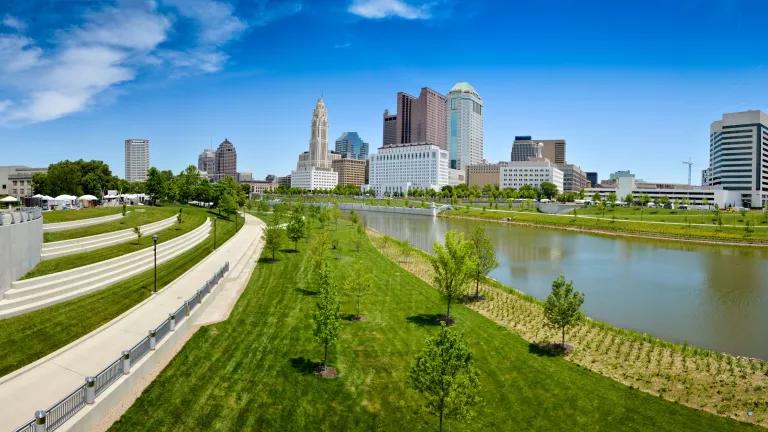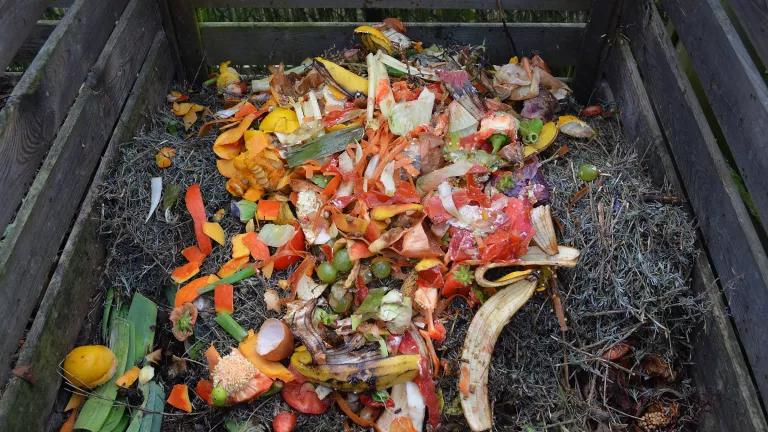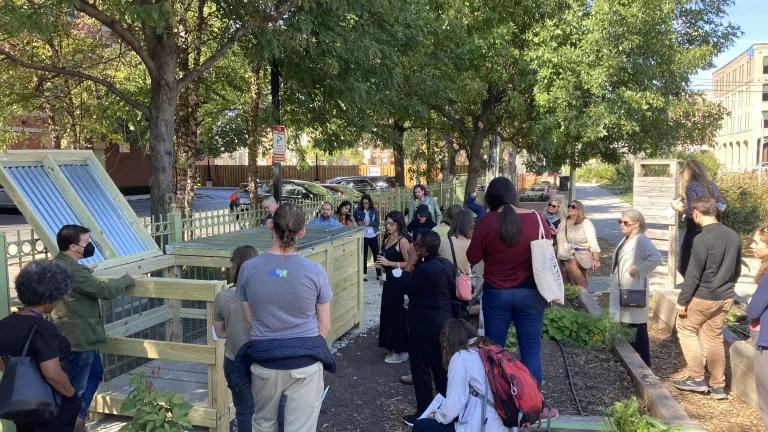U.S. Cities Raise Awareness of Food Loss and Waste
On the Second International Day of Awareness of Food Loss and Waste, we highlight U.S. cities that have been leading the way on raising awareness about the issues of food waste and inspiring people to take action. #FLWDay

Across the globe, nations, organizations, and individuals are observing the second International Day of Awareness of Food Loss and Waste. Last year, the UN created this day to acknowledge the problem and opportunity food loss and waste presents, and to spur action. The disposal of food waste in landfills leads to greenhouse gas emissions and wasted resources all along the food supply chain. However, reducing food waste can be a solution to address climate change that also ensures good food makes it to people’s plates.
In the United States, homes are the largest source of food waste. That is why consumer education through methods like awareness campaigns are critical. Each of us must change our consumption habits to eliminate food waste and thus reduce greenhouse gas emissions. This past year, U.S. cities participating in NRDC’s Food Matters Regional Initiative have been leading the way on raising awareness about the issues of food waste and inspiring people to take action. Here are just a few examples of the great campaigns from the Regional Initiative:

- Save More Than Food (Franklin County, Ohio): The Solid Waste Authority of Central Ohio (SWACO) has developed a campaign called Save More Than Food. It is an awareness campaign dedicated to sharing the impact that food waste has on the health of the community, economy, and environment. The campaign has a dedicated website to share tools and resources, including print, video, radio, and food service assets. Since its launch in 2020, the campaign has reached over 16,000 households.

- Plan. Use. Create. Scrap. (Madison, Wisconsin): The City of Madison launched an awareness campaign in July 2021 using the slogan, “Plan. Use. Create. Scrap. Together we can end food waste.” To develop the campaign design and messaging, they worked with a local art collective called UnderBelly Creative + Collective. The campaign message has been run on city buses and social media and the Streets and Recycling department also has posters and stickers to give out at local events. Engaging residents on food waste reduction is part of Madison’s comprehensive plan to reduce food waste throughout the city.

- Year of Rethinking Food Waste (Jersey City, New Jersey): The City of Jersey City rolled out a food waste reduction campaign for the “Year of Rethinking Food Waste.” The Office of Sustainability’s focus in 2021 is on rethinking how they approach food waste in their community and how they can reduce wasted food through prevention messaging, rescuing surplus food, and recycling food scraps by composting. As part of their food waste prevention messaging efforts, they have run social media features and print media public service announcements (PSA), earning over 280,000 impressions since the start of this year. The social media feature is called “Food for Thought Fridays” where they share helpful tips, like this fridge graphic.

- Make Food Matter (Baltimore, Maryland): In 2020, the City of Baltimore created culturally appropriate resources to increase awareness about food waste among city residents. The goal was to center Black and African American communities in the food waste narrative for Baltimore and to highlight the enthusiasm of communities representing Black, Indigenous, and other People of Color (BIPOC) who engage in environmentally conscious behaviors but are too often left out of the conversation. The result was a series of posters that are used on social media, displayed at community centers, schools, on public transit and at community hubs across the city. Since the release of the posters, the city continues to update and create new, tailored messaging.

- Save The Food AVL (Asheville, North Carolina): The City of Asheville and community partner Food Waste Solutions WNC developed a campaign called Save The Food AVL and proclaimed April of this year “Food Waste Reduction Month.” For the month, they both shared tips on their website and ran a home food waste challenge, called the #AVLFoodWasteChallenge, to encourage behavior change in households. Since April, they have run the campaign on sanitation trucks and continue to share tips and tricks to keep food out of the landfill on their websites and social media. They plan to continue "Food Waste Reduction Month" in 2022 by adding a county proclamation to the existing city one.

- Local Hero Stories (Memphis, Tennessee): The Memphis Food Waste Project, led by Clean Memphis, is rallying around food waste to start building a circular economy, making Memphis cleaner, better resourced, and more resilient. The initiative wrote a series of stories about people who work to reduce food waste in Memphis. The local heroes include For The Kingdom, an organization looking to create a thriving food economy inside one of the most severe food apartheids in the region, and Compost Fairy, a nonprofit dedicated to local composting. These stories are being released through a partner of the Project, Memphis Transformed, with the hashtag #901savethefood.

- Food Waste Prevention Week (Orlando, Florida): The City of Orlando messages on social media to support its programs – such as food waste drop off for residents and food waste recycling for businesses – and has reached over 30,000 people this year. In April, they joined the state’s Food Waste Prevention week and utilized a bingo board as an innovative way to encourage people to change their behaviors. They continue to share resources through social media and local events.
These are just a few highlights of the many cities across the country that continue to innovate, raise awareness, and inspire action around food waste reduction. With nine years left to meet our national 2030 goal of reducing food waste by 50%, we need everyone to rethink their relationship with food and build more sustainable habits.




